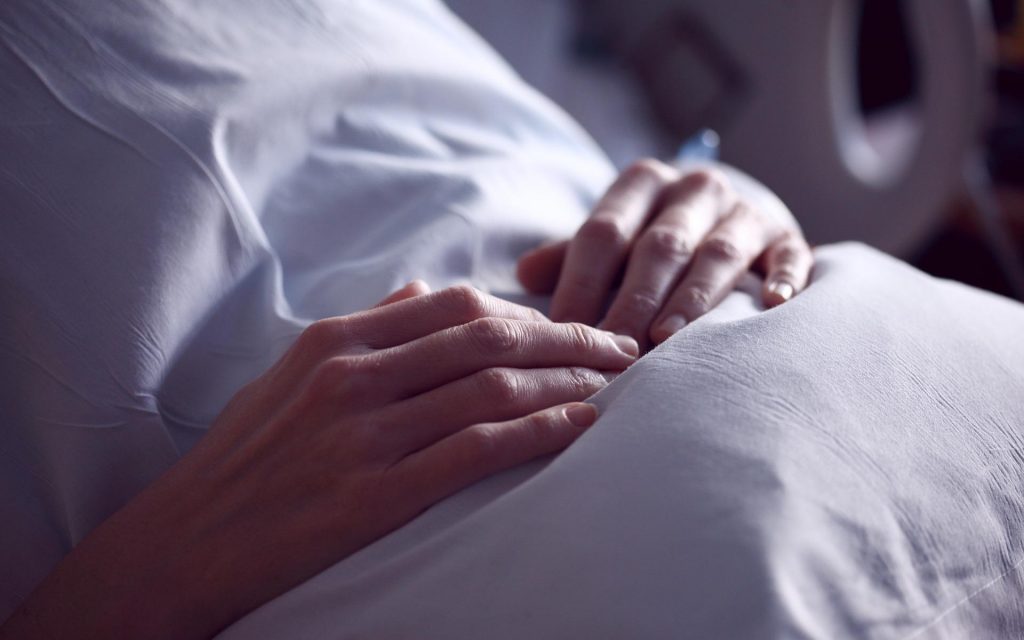 Subscribers Only
People
Subscribers Only
People 
Bethan Edwards, Policy and Public Affairs Manager (Wales) of Marie Curie shares her recommendations for the Welsh Government’s ten-year women’s and girls’ health plan.
We know that women go their whole lives facing inequality, and international evidence now shows that their death is no exception. Women across the world face disproportionate challenges when it comes to end of life care and support – whether this is receiving care themselves or providing care to others. Current evidence shows that there are sex and gender differences in symptom burden and pain, as well as preferences and experience of treatment at end of life. Women can also be less likely to state a preference for receiving care or dying at home, with research sadly showing that this can be because women fear being a burden on their family and friends.
These challenges intersect with a variety of other potential barriers to equality, including but not limited to, if you are a Black, Asian or minority ethnic woman, a disabled woman, within the LGBTQ+ community, or living in poverty.
At the beginning of July, Welsh Government published a Women and Girl’s Health Quality Statement. This is a welcome step forward in achieving gender equity in health and care in Wales and it is great to see the calls of Women’s Health Wales – a coalition of over 60 organisations, including Marie Curie – being actioned.
However, Marie Curie – the UK’s leading end of life care charity – has expressed deep disappointment in the failure to mention palliative and end of life care in the published Quality Statement. Despite previous commitments from the Health Minister to ensure a ‘life-course approach’, there is no explicit mention of the potential inequalities that exist when women reach the end of their life. If Welsh Government are truly intent on a women and girl’s health plan which spans from cradle to grave, end of life care must be considered.
With demand for palliative care set to increase by 42% in Wales and England over the next two decades, work must begin now to understand where and why inequity may exist and how we eliminate these barriers. For this to be taken forward concretely and at pace, we need an explicit mention of palliative and end of life care in Welsh Government’s Ten-Year Women and Girls Health Plan (due in autumn 2022), and we must see palliative and end of life care considered by health boards in their upcoming health planning cycles.
To ensure everyone in Wales has equal access to the palliative and end of life care they need, no matter their characteristics or background, we need to understand more about gender-related barriers in Wales and how we can eliminate them.
Earlier this year, the charity called for more research on palliative and end of life care to be conducted through a sex and gender lens. Despite the omission of end of life care from the Quality Statement, Marie Curie was delighted to hear the Health Minister’s plans for a women’s health research fund and look forward to engaging with this in the future.
Marie Curie is committed to leading a national conversation on end of life experience and challenging the inequities present in our society and our health and care systems. We know that we have a role to play in developing the evidence base around sex and gender inequalities, and we are currently working with UCL to explore potential gender disparities in place of care and death within Marie Curie services in Wales. We look forward to sharing the findings next year and are keen to hear from anyone with interest or personal experience of this issue, by getting in touch with [email protected].
Notes
Key recommendations of the plan include improved access to specialist services, improved data collection, support for sustainable co-production of services, and enhanced training for health and care professionals.
You can find out more about the report and the coalition’s work at https://www.ftww.org.uk/womenshealthwales/
The full Women’s Health Wales report can be found here.
The Welsh Government Women and Girl’s Health Quality Statement can be found here.


